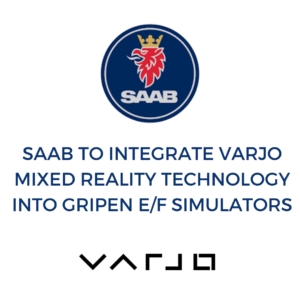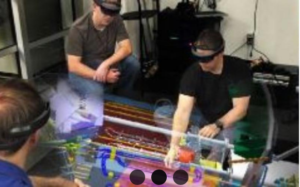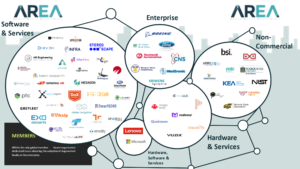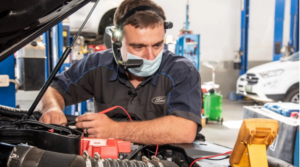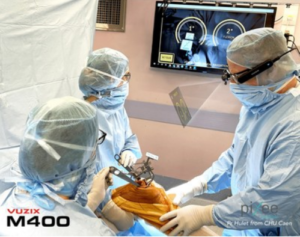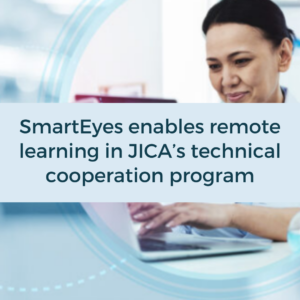ThirdEye Now Available on FirstNet® Delivering Reliable Communications Capabilities for First Responders
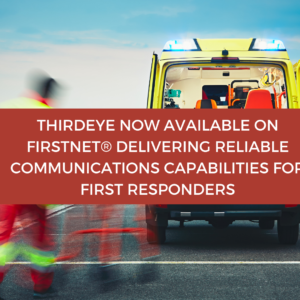
FirstNet, built with AT&T, is a public-private partnership with the First Responder Network Authority (FirstNet Authority) – an independent agency within the federal government. It’s designed with and for first responders and the public safety agencies and extended community that could be called on to support them.
The ThirdEye X2 MR Glasses and RespondEye software support access to the physically separate and dedicated FirstNet network core, which enables First Priority® capabilities on FirstNet – always-on priority and, for first responders, preemption – and the FirstNet Band 14 spectrum. FirstNet eligible customers can feel confident the X2 MR Glasses combined with FirstNet services will provide the necessary critical connectivity in a reliable, highly secure and cost-effective manner.
As part of the agreement through the FirstNet Embedded IoT Program – a program that allows for industry leading FirstNet eligible devices to be combined with FirstNet to create a bundled, end-to-end solution for a single monthly fee for first responders, public safety agencies and extended community – the ThirdEye solution will include FirstNet connectivity.
This collaboration comes after ThirdEye successfully launched its pilot programs with the Marcus Hook and Upper Merion Fire Departments in Pennsylvania. ThirdEye’s X2 MR Glasses with the RespondEye software help prevent first responders from coming in contact with potential COVID-19 patients using the attachable FLIR (forward-looking infrared) thermal sensor to detect elevated body temperatures – one of the symptoms of the disease. By using the smart glasses, medics can be hands-free and receive digital information displayed live in their field of view.
“Our telehealth software assists first responders with their everyday tasks while also equipping them with the technology to help protect them from COVID-19,” said Nick Cherukuri, CEO and founder of ThirdEye. “FirstNet provides first responders access to the high-speed and reliable connectivity when facing emergencies. We continue to update the RespondEye’s features upon requests from the EMS teams as we work toward making the implementation of AR in healthcare the new norm.”
By wearing the smart glasses, a paramedic in the field can directly contact a doctor for assistance. The doctor can then stream live video from the scene to be displayed on a computer, tablet or smartphone at the hospital via the RespondEye platform. This allows the doctor to assess a patient and make treatment recommendations without having face-to-face contact. The RespondEye software is cross-compatible and runs on ThirdEye X2 MR Glasses as well as iOS/Android phones, tablets and web browsers. The software is currently free to first responders with tiered pricing for data usage being released soon.
“We’re pleased to welcome ThirdEye as a member of our FirstNet IoT Embedded Program,” said Scott Agnew, assistant vice president, product marketing, FirstNet Program at AT&T. “This allows us to further our mission to deploy, operate, maintain, and enhance the only nationwide wireless platform dedicated to public safety and the extended community that support public safety response.”
At just 300 grams, ThirdEye’s X2 MR Glasses are the lightest mixed reality glasses on the market and are suited for comfortable, extensive wear in all conditions. The glasses run on Android 9.0 and are powered by a Snapdragon xR1 Qualcomm processor chip. ThirdEye also developed custom augmented reality first responder software via its RespondEye software platform suite, which connects to the EMS backend systems. This software combined with ThirdEye’s HIPAA certification enables first responders to access all of their data on demand and safely via the X2 MR Glasses.
ThirdEye achieved HIPAA certification for its X2 MR Glasses and RespondEye Platform, HIPAA compliance is a requirement for vendors that handle any patient medical data to ensure the security of the patient’s information as well as confidentiality.
